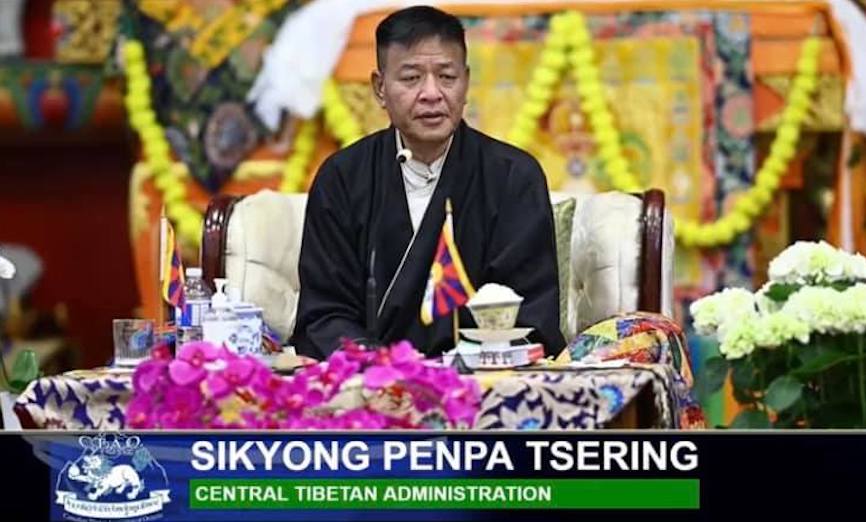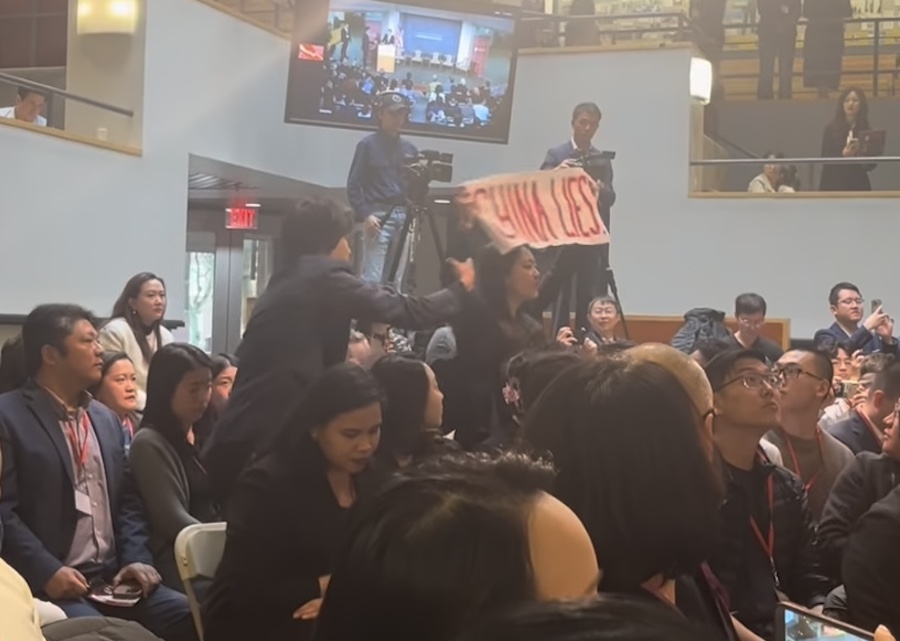By Choekyi Lhamo
DHARAMSHALA, May 10: The recent testimony by the President of the Tibetan government-in-exile, also known as the Central Tibetan Administration, Penpa Tsering at the Canadian House of Commons, has drawn opposition from the Chinese embassy in Canada on Saturday. Chinese government-run mouthpiece Global Times said its embassy expressed strong disapproval of the Canadian government for making arrangements for Sikyong to testify before the Standing Committee on Foreign Affairs and International Development in the parliament.
The article said that the spokesperson from the Chinese embassy had called the Tibetan government-in-exile a “separatist political organization” with the aim of achieving “Tibet independence”. Furthermore, it accused the CTA elected leader of being “a downright anti-China separatist whose purpose of visiting is to sell the idea of “Tibet independence” and advance the internationalization of Tibet-related issues.” These heavy-laden terms have been used by the representative of the Chinese government, many say, to undermine the legitimacy of Penpa Tsering by hurling direct denouncement of his authority.
“Regarding the so-called Tibet-China Dialogue, what I want to stress is that we do not recognize any Tibetan ‘government-in-exile,’ and the central government will never negotiate with such an illegal organization,” the spokesperson said in the statement. The continuous opposition of the CCP government to every official meeting is not new; Tsering’s recent visit to Washington DC where he met with Czech Foreign Minister Jan Lipavský also again drew criticism from the Chinese embassy in Prague. The statement called Czech leader’s association a “serious breach” in relations with the Beijing administration, adding that the Czechs had sent “a consequentially wrong message” to the Tibetan separatist movement.
The angered statement from the Chinese embassy in Canada also took issue with the discussions regarding the whereabouts of the 11th Panchen Lama, for which the abbot of Tashi Lhunpo monastery Zeekgyab Rinpoche was present at the House of Commons. “In order to carry out anti-China separatist activities, [Dalai Lama] dismantled religious rules and neglected the historical system and declared a child as ‘the reincarnation of the Panchen Lama’ while overseas without authorization, which is illegal and invalid,” the statement had noted, adding that the chosen reincarnation is just a “regular Chinese citizen who is living an average life,” the same article quoted the spokesperson as saying.
However, the spokesperson concluded with a demand directed towards the Canadian government to immediately stop interfering in their “internal affairs” and promised action if Canada continues to take part in ‘anti-China’ activities. “I have to reiterate that Xizang (Tibet) is an inalienable part of China and it is a fact recognized by many countries. Xizang’s affairs are purely China’s domestic affairs that allow for no interference from the outside. China requires Canada to immediately stop interfering in China’s domestic affairs over Xizang-related issues, while damaging the stability in Xizang, and to stop providing support and a platform for separatists on which to carry out their anti-China separatist activities, or China will be compelled to respond accordingly,” the spokesperson further stated.
Despite nine rounds of talks between the representatives of His Holiness the Dalai Lama and representatives of Beijing since 2002, China has rejected the Middle Way Approach, the official stance of the exile Tibetan government that seeks genuine autonomy under the framework of the Chinese constitution.










